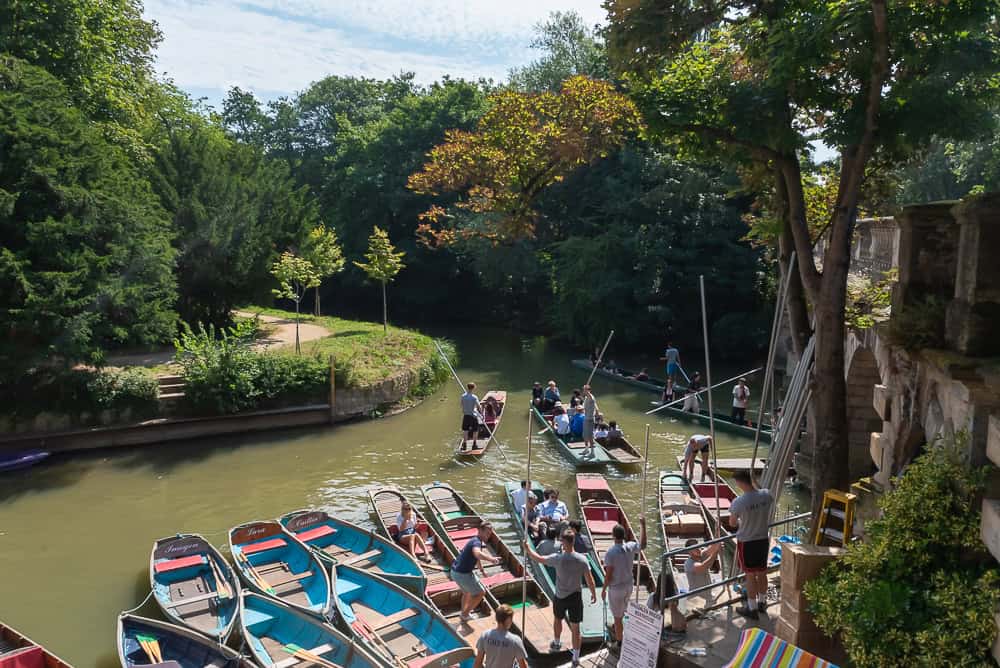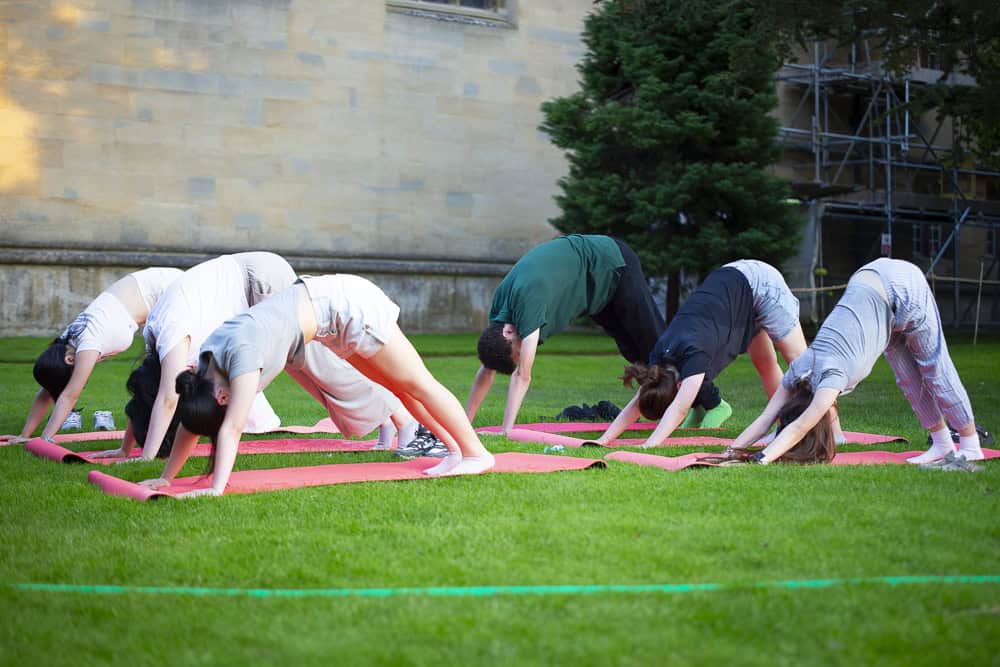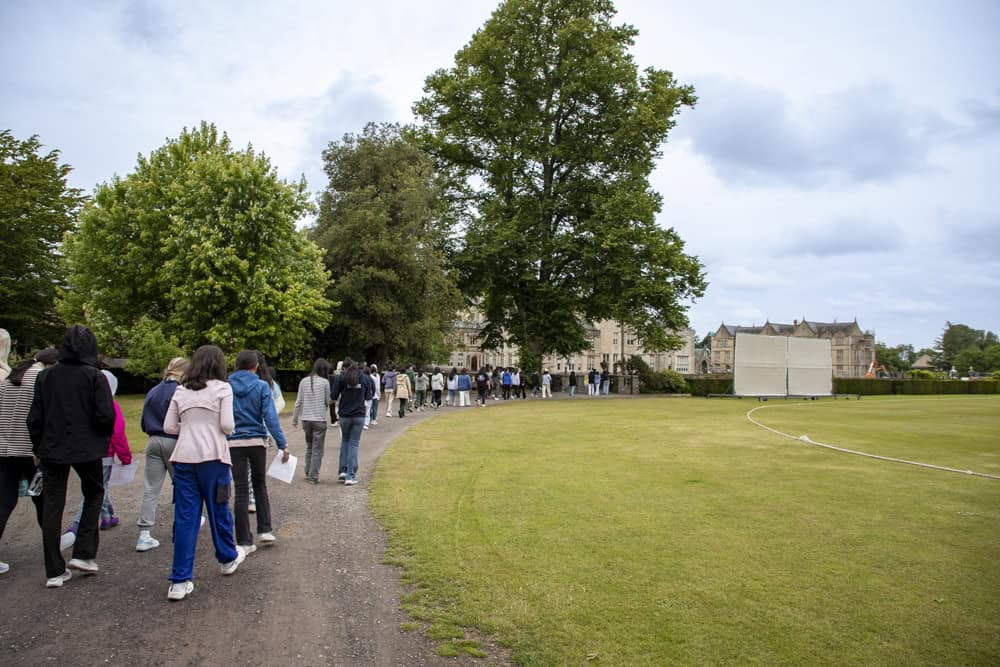What is Summer School? The Complete Guide

Summer schools are a popular choice for parents and students worldwide, offering a unique opportunity to develop both academically and personally during the summer break. But what exactly is summer school, and why are these programs so valued by students across the globe? What is summer school for? Summer school programs serve as an educational opportunity during the summer break to help students enhance their learning, address academic needs, or participate in various summer enrichment programs and activities. Attending a summer school can build social networks, enhance university applications, and aid acclimatization for international students. In this guide, we’ll explore the essence of summer school, how it works, and what a typical experience looks like. You’ll also learn about the specific benefits that make summer school a transformative experience for many young learners.
What does summer school mean?
At its core, summer school is a short-term educational program that takes place during the summer holidays. It is often hosted by schools, universities, or private educational providers and offers students a chance to continue their learning in a different, often more relaxed, environment. Programs typically range in length from a few days to several weeks, depending on the institution, and cover a wide variety of subjects.
Summer schools vary in format. While some focus purely on academic enhancement, others offer a mix of academics and extracurricular activities, blending learning with social interaction and academic enrichment. The residential nature of most summer schools means students live on-site, usually in boarding school facilities or university accommodation. This immersive setting not only helps students focus on their studies but also promotes independence and responsibility, as they manage their time and daily routine outside of their usual home environment. Additionally, effective summer school provision is crucial for securing funding and managing attendance, which can help address educational gaps and support the mental health and wellbeing of students.
For example, at SBC’s Oxford Summer School, students live on prestigious Oxford University campuses and engage in tailored courses designed to inspire a love for learning. With a balance between academics and social activities, students leave the program having experienced a world-class education in a culturally diverse setting.
Definition of Summer School
Summer school refers to educational programs or courses offered during the summer break, typically between the end of one academic year and the beginning of the next. These programs cater to students of various ages and academic levels, from primary school to university. They can be organized by schools, universities, or independent educational organizations. The primary purpose of summer school and summer learning programs is to provide students with additional learning opportunities, support, and enrichment outside of the regular school year. Whether it’s to catch up on missed work, get ahead in their studies, or explore new interests, summer school offers a flexible and supportive environment for continued learning.
What is the purpose of summer school?
The goals of summer school can vary depending on the needs and aspirations of each student. However, there are three primary objectives that most summer schools aim to achieve through their educational programs.
- Academic Progress: Many students attend summer school to strengthen their knowledge in key subjects, preparing themselves for the next stage in their education. Summer programs can also offer the chance to study subjects that aren’t typically available during the regular school year, such as niche areas in STEM or the arts.
- Language Learning: For international students, summer school provides an invaluable opportunity to develop and refine their English language skills. At SBC, students are immersed in an English-speaking environment, helping them to improve both conversational and academic English through daily interaction and formal lessons. This immersion not only accelerates language development but also builds confidence in using English in real-world settings.
- Personal Development: Beyond academics, summer school nurtures essential life skills. Students learn to work collaboratively, communicate effectively, and solve problems in a new setting. This exposure to different cultures and experiences helps broaden their worldviews, making summer school a pivotal time for personal growth.
- Preparation for Future Studies or Careers: For older students, particularly those in their teens, summer school offers the chance to explore potential career paths. Programs like SBC’s Law Summer School immerse students in practical, real-world learning, giving them a taste of what a career in law might be like.
Benefits of Summer School
Attending a summer school can have numerous benefits for students. Here are some of the advantages of participating in a summer school program:
Improve Academic Foundations
Summer schools provide an excellent opportunity for students to strengthen their academic foundations and develop new skill sets for the future. By immersing themselves in a structured academic program, students can reinforce their understanding of core subjects, receive academic support, and boost their academic performance. These programs often focus on essential skills such as effective communication, critical thinking, and problem-solving, which are highly sought after by employers. Whether it’s mastering a challenging math concept or honing writing skills, summer schools offer a supportive environment for academic growth.
Overcome Summer Learning Loss
Summer learning loss, also known as the “summer setback,” is a common issue where students lose previously acquired knowledge during the summer break. Attending an academic summer school can help prevent this by engaging students in structured programs and workshops. These activities allow students to maintain a routine and continue their learning, ensuring they retain information and stay sharp. This is particularly beneficial for students who may struggle with retaining information over long periods, as it keeps their minds active and ready for the upcoming school year.
How does summer school work?
Summer schools offer a structured yet flexible environment that balances academic learning with social activities, creating a comprehensive summer school experience. Each school may have its own unique approach, but the core framework remains the same: an immersive, supportive setting that allows students to explore new subjects, develop skills, and enjoy a broad range of extracurricular activities. Summer school programs are often hosted by prestigious universities, providing exceptional educational resources and faculty, making it important to research and compare these programs to align with individual academic interests and budgets.
At SBC, summer school is designed to cater to a variety of interests and goals. Here’s a breakdown of how a typical summer school works, with examples from SBC’s programs:
Application
The summer school application process is usually straightforward but can vary depending on the program. Students or their parents typically submit an online application, detailing the student’s interests, academic background, and the program they wish to attend. Applying to an international summer school offers a comprehensive experience, including cultural exposure, independence, and the opportunity to explore various subjects. At SBC, the process is user-friendly, with the option to apply directly through the application page. Applicants are also encouraged to contact SBC’s admissions team for guidance throughout the process.
Once accepted, students receive a detailed guide about their course and what to expect during their stay, helping them to prepare for their academic and personal journey.
Activities
One of the biggest draws of summer school is the range of extracurricular activities offered alongside academic learning. Students engage in both structured lessons and hands-on workshops, which often focus on practical applications of what they are learning. At SBC, activities can range from debates and presentations in subjects like law, to science experiments and art workshops, all designed to help students apply their knowledge creatively. These activities are particularly beneficial for secondary school pupils transitioning to a new educational environment, as they help them acclimate and establish connections with teachers.
Beyond academics, SBC also offers a rich social programme, which includes excursions to famous landmarks, sports, and evening events, ensuring that students build friendships and enjoy their summer in a fun, dynamic way.
Assessments
While summer school is often less formal than traditional schooling, academic assessments can still play a role, particularly in programs aimed at older students preparing for university. These assessments are typically project-based and focus on practical skills rather than rote memorization. School leaders play a crucial role in coordinating staffing and collaborating with teachers from feeder primary schools to enhance the planning and delivery of summer school programs. For example, SBC’s Time to Shine presentations allow students to work in groups to research and present a topic, building confidence and communication skills in a supportive setting.
Accreditations and Certifications
Many summer schools, including SBC, offer formal recognition of a student’s achievements through a certification of completion. Certificates are awarded upon completion, showcasing not only the academic progress made but also the skills developed during the program. These certifications are particularly valuable for students who may later apply to competitive university programs, as they provide evidence of extracurricular learning and commitment to personal development.
Types of Summer Schools
Summer schools can be categorized into different types based on their focus, duration, and target audience. Here are some common types of summer schools:
Secondary School Summer Programs
Secondary school summer programs are designed for students in secondary education, typically between the ages of 11 and 18. These programs may focus on core academic subjects like mathematics, science, and languages, or offer more specialized courses in areas such as arts, sports, or technology. Secondary school summer programs provide an excellent opportunity for students to catch up on missed work, prepare for upcoming exams, or delve into new interests. They also help students stay engaged during the summer holidays, ensuring they return to school ready to succeed.
University Summer Programs
University summer programs are tailored for students who are preparing to enter university or are already enrolled in higher education. These programs can offer a range of academic courses, research opportunities, or professional development experiences. University summer programs are a fantastic way for students to gain a head start on their academic careers, build their skills and knowledge, and network with peers and professionals in their field. Whether it’s through intensive study, hands-on research, or career-focused workshops, these programs provide valuable experiences that can enhance a student’s educational journey.
Finding and Choosing a Summer School Program
With so many summer school options and programs available, it can be challenging to find the right one. Here are some tips to help you research and compare programs:
Research and Compare Programs
Finding the perfect summer school program requires thorough research and program comparison. Start by utilising online resources and directories to identify programs that match your academic interests and budget. Ensure that the institution offering the program is reputable and accredited, as this guarantees a high-quality educational experience. Look for reviews or testimonials from past participants to gain insights into their experiences and satisfaction with the program.
Seek advice from academic advisors or study abroad offices at your current educational institution, as they can provide valuable recommendations and guidance. When choosing a destination, consider your interests, language preferences, and desired cultural experiences. Additionally, explore scholarship opportunities and financial aid options to help offset program costs.
Review the curriculum of each program to ensure it aligns with your academic goals and interests. By considering these factors, you can find a summer school program that meets your needs and provides a valuable learning experience.
Check Accreditation and Credentials
When researching summer schools, it’s essential to check the accreditation and credentials of the institution offering the program. Accreditation ensures that the summer school meets certain standards of quality and is recognized by reputable organizations. Look for accreditation from organizations such as the Council for Advancement and Support of Education (CASE) or the National Association of Secondary School Principals (NASSP).
Additionally, check the credentials of the instructors and staff leading the summer school program. Ensure they have relevant experience and qualifications in their field, and that they are passionate about teaching and mentoring students.
By verifying the accreditation and credentials of the summer school, you can ensure that you’re investing in a high-quality program that will provide you with a valuable learning experience.
Scholarships and Financial Aid
Many summer schools offer scholarships and financial aid to help make their programs more accessible to students. These scholarships can be merit-based, need-based, or a combination of both.
To explore scholarship opportunities, research the summer school’s website and contact their admissions team directly. They can provide you with information on available scholarships, eligibility criteria, and application deadlines.
Some summer schools also offer financial aid packages, which can include grants, loans, or work-study programs. Be sure to ask about these options when inquiring about scholarships.
By taking advantage of scholarships and financial aid, you can make your summer school experience more affordable and focus on what matters most – learning and growing.
Preparing for Summer School
To get the most out of your summer school experience, it’s essential to prepare beforehand. Here are some tips to help you get started:
Create a Study Schedule
Create a study schedule that outlines your goals, deadlines, and study habits. This will help you stay organized and focused throughout the program. Be sure to include time for relaxation and self-care, as summer school can be intense.
Ask for Help Early
Don’t hesitate to ask for help if you’re struggling with a particular concept or assignment. Summer school instructors are often more accessible than regular school teachers, and they’re there to support you. Reach out to them early, and they’ll be happy to provide guidance and feedback.
By preparing for summer school and seeking help when needed, you’ll be well on your way to a successful and enriching experience.
Summer School Courses
Summer school courses can vary widely depending on the program and institution offering them. These course offerings can include:
- Academic Subjects: Courses in mathematics, science, languages, and humanities help students strengthen their knowledge and prepare for the next school year.
- Specialised Courses: Programs in arts, sports, technology, and entrepreneurship allow students to explore their passions and develop new skills.
- Language Courses: English as a second language (ESL) or foreign language immersion programs enhance language proficiency in a supportive environment.
- Career Development Courses: Workshops on resume building, interviewing skills, and job search strategies prepare students for the professional world.
- Research Opportunities: Internships, research projects, or academic papers provide hands-on experience in various fields of study.
Summer school courses can be delivered in various formats, including in-person, online, or hybrid models. Some programs may also offer credit or certification upon completion, adding value to the student’s academic portfolio. Whether aiming to improve academic performance, explore new interests, or gain practical experience, summer school courses offer a wealth of opportunities for growth and development.
What is summer school like?
Summer school provides a unique blend of academic learning and social interaction in a diverse, stimulating summer school environment. For many students, it’s not just about studying—it’s about building new friendships, discovering different cultures, and growing in confidence. However, students often face challenges due to summer learning loss after their summer holiday breaks. Summer schools provide continuity and learning opportunities during this period, allowing students to balance academic activities with leisure. At SBC, summer school is designed to offer students an enriching and balanced experience that fosters personal and academic development.
SBC offers summer schools at some of the UK’s most prestigious locations, from university campuses to top boarding schools. Whether attending the Headington Summer School, Oxford College, or any of the other SBC programmes, students can expect an immersive experience where academic sessions are complemented by hands-on activities, workshops, and excursions. Each day is carefully structured to ensure a balance between study, social interaction, and relaxation.
Accommodation is provided in comfortable and secure facilities, designed to encourage independence while offering the support students need. Whether staying in historic university halls or modern boarding school residences, students are surrounded by like-minded peers, creating a vibrant international community. Daily schedules include academic lessons in the morning, followed by group activities and social events in the afternoon and evening. Students from all over the world come together to learn and grow, making the experience deeply enriching on both a personal and academic level.
What will summer school do for your child?
Summer school offers more than just academic progress—it’s an opportunity for student development, allowing students to thrive socially, emotionally, and intellectually. Effective management and oversight of summer school funding are crucial, as schools must utilize the grants appropriately for academic and enrichment activities. Whether your child is preparing for future studies or simply looking for a memorable summer, SBC’s summer schools offer a broad range of benefits.
Students get inspired!
SBC’s courses are designed to ignite curiosity and inspire students to explore their passions through inspirational learning. By offering engaging, subject-focused workshops and activities, SBC enables students to dive deeper into topics they are passionate about, from STEM subjects to the arts. Real-world learning opportunities, such as project-based work and interaction with professionals, help students gain insights into potential career paths. Summer schools play a crucial role in supporting students transitioning from primary to secondary schools, particularly in addressing the impacts of the pandemic on their educational preparedness and wellbeing. Many students leave summer school feeling more motivated and excited about their future.
Students gain confidence
For many students, summer school represents a first step towards independence and confidence building. Whether it’s adapting to a new environment, making new friends, or presenting their ideas in front of a group, SBC’s summer school programmes encourage students to push their boundaries. With supportive teachers and staff, students learn to express themselves confidently, develop leadership skills, and become more comfortable in new social settings.
Students further develop their English
One of the core benefits of SBC’s international summer schools is the focus on English language development and language immersion. For non-native speakers, the immersive environment allows them to improve their English skills in both academic and social contexts. By participating in group discussions, presentations, and daily interactions with peers from around the world, students build fluency and confidence in using English. SBC’s CLIL methodology ensures that language development is integrated seamlessly into subject learning, offering a holistic educational experience.
Connecting Global Perspectives with Local Experiences
For students attending an international summer school, the opportunity to engage with peers from around the world offers more than just language immersion—it fosters a sense of global citizenship and cultural exchange. By interacting with local students and exploring different countries, participants gain a deeper understanding of cultural diversity and social dynamics. These programs don’t just focus on academic content; they integrate cultural activities and excursions that give students real-world exposure to new environments and viewpoints. The experience of adapting to a different country while maintaining academic progress prepares students not only for future studies but also for thriving in an increasingly interconnected world.
SBC summer schools are designed to offer a well-rounded experience, where students not only advance their academic skills but also develop socially and personally. Through a mix of academic challenges, cultural exchanges, and personal growth opportunities, summer school prepares students for future success both in and out of the classroom.
Get in touch today
Ready to provide your child with an unforgettable summer experience? Explore SBC’s range of summer school courses and discover the perfect program for them. Whether they’re aiming to boost their academic skills, improve their English, or explore new interests, SBC has a summer school tailored to their needs. Navigate the summer school application process and apply now to give your child the opportunity to learn, grow, and make lifelong memories.
Speak with a member of our friendly admissions team
Our admissions experts are happy to answer any questions you have and support you in finding the perfect summer experience.








